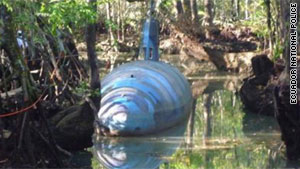Cyberwar Is Hell
We’ve been focused on the wrong spies. When 11 Russian sleeper agents were discovered living in the United States—and then sent home in exchange for their counterparts—it was hard to resist the sexy espionage tale with echoes of the Cold War. But while we’ve fixated on Anna Chapman and her cohorts, top diplomats were working on a wonkier but more important advance in spycraft. This month, experts from 15 countries agreed to begin serious negotiations on establishing international norms on cybersecurity. This story is far more significant in the long run because, without basic agreements about cyberspace, cyberattacks, and even cyberwars could become a daily danger.
Sure, spy stories are irresistible—particularly when a sexy redhead like Chapman is involved and there are plenty of racy photos to titillate readers. It’s also true that the press may have been too quick to write off the Russian sleeper agents as a bunch of bunglers who accomplished nothing. We don’t know what support roles they may have had for more serious operations; human intelligence can still trump electronic spying in many situations, and spying will always be with us.
But, increasingly, international relations will be shaped by new challenges that require new tactics—and new assumptions about where we can and should cooperate, even with former enemies. Look at the United Nations group of experts that overcame at least some of their mutual suspicions to take a first step toward international cooperation on cybersecurity last week. After years of talks that went nowhere, they—United States, Russia, China, India, and several others—agreed to begin discussing ways to exchange information about national cyberstrategies, strengthen protection of computer systems around the world, including in less-developed countries, and even set some ground rules on cyberwarfare. Other nations in attendance may not be G7 economies, but online they are powerhouses: Israel, Brazil, South Korea, and Estonia.





